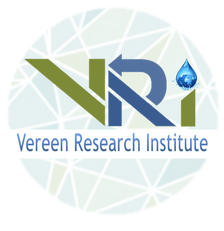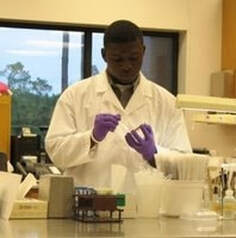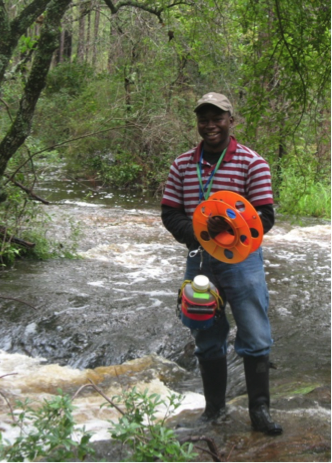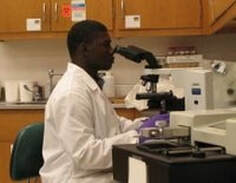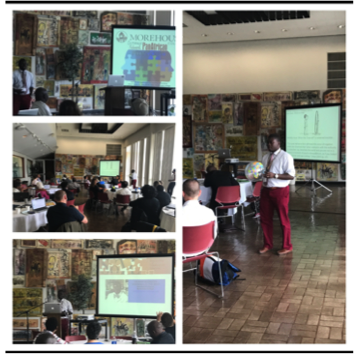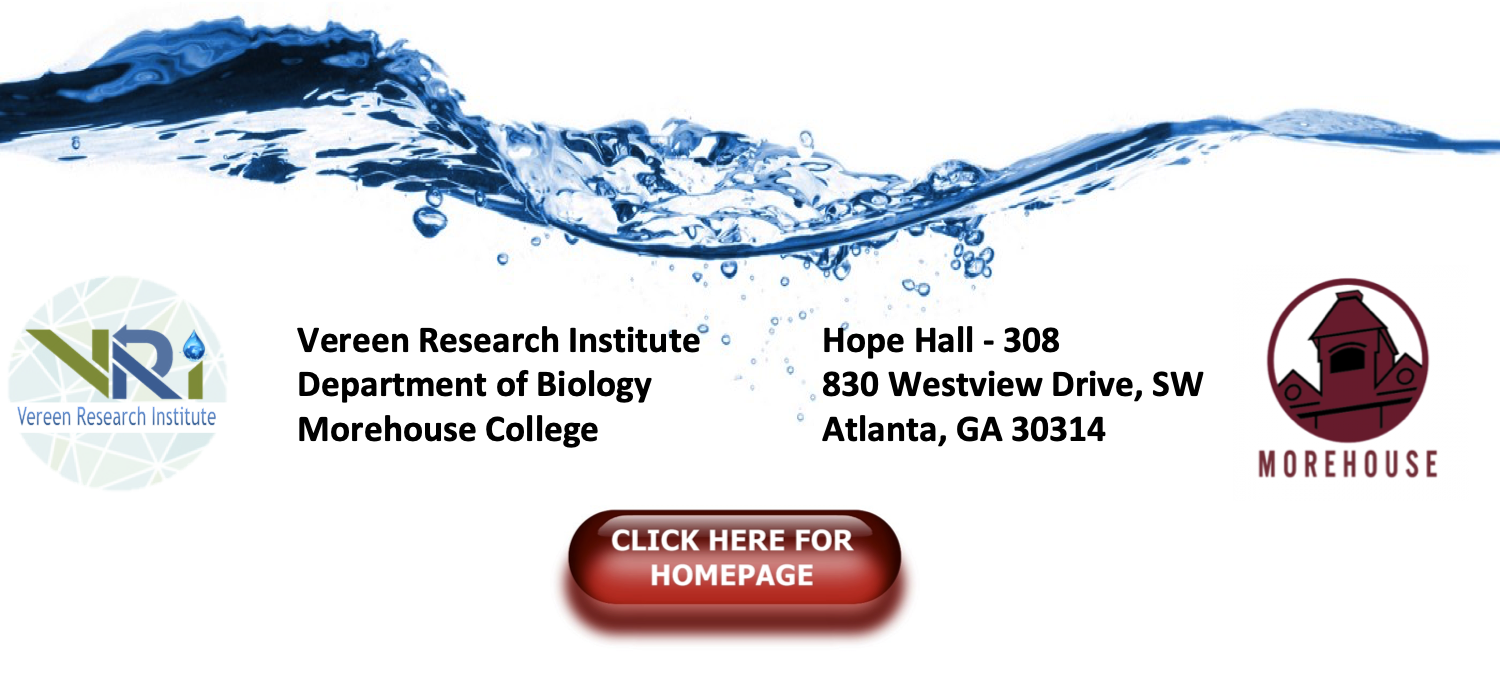Ethell Vereen, Jr., PhD
Principal Investigator, Director of the VRI
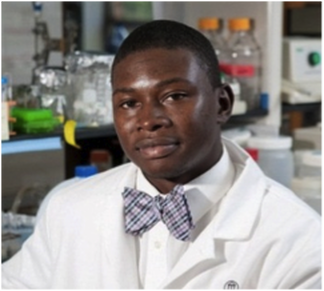
Assistant Professor of Biology
Morehouse College
Office: Hope Hall, Room 303
Phone: 470.639.0534
Email: [email protected]
Link to brief curriculum vitae
Full CV and Publication PDFs for personal use are available upon request
Morehouse College
Office: Hope Hall, Room 303
Phone: 470.639.0534
Email: [email protected]
Link to brief curriculum vitae
Full CV and Publication PDFs for personal use are available upon request
Education
- Postdoctoral Training, Emory University, Rollins School of Public Health, The Center for Global Safe Water, and Environmental Health Department, Fellowship In Research and Science Teaching (FIRST) Fellow, 2011-2014
- Ph.D., Ecology, University of Georgia, Athens, GA, 2010
- M.S., Environmental Health Science, University of Georgia, Athens, GA, 2005
- B.S., Biology, South Carolina State University, Orangeburg, SC, 2002
Research Statement
I am highly motivated by a broad interest in environmental health, water quality, and environmental microbiology. My research focuses primarily on the ecology of waterborne diseases with an emphasis on water quality. Recently, I expanded my research to focus on the use of metagenomics and other molecular tools to study the structure and dynamics of various microbial ecosystems (more specifically urban watersheds); and to include activities on the mechanisms and evolution of antibiotic resistance. My work on water quality is focused on understanding the sources, transformation, transport, and ecology of waterborne pathogens -- specifically Salmonella and Campylobacter, as well as fecal indicator organisms. This knowledge is crucial to directing new policies, research and applied practices that protect human and ecosystem health. My work on antibiotic resistance aims to facilitate a better understanding of how drinking water treatment and water quality may influence or promote antibiotic resistance. To investigate and identify the influence of environmental and anthropogenic pressures on the microbial communities of urban watersheds, my work explores the microbial community composition and functions, as deduced from metagenomic data.
I also recognize that research is enriched both by students and by professors from sometimes unrelated fields who can bring fresh opinions and points of view to their projects. Therefore, it is important to me that I conduct collaborative research that allows me to work with specialists in a variety of fields, as well as to include students in the research process. To this end, I have sought out opportunities both on campus and external to Morehouse to collaborate as I continue to build and develop my research program. Please feel free to CONTACT ME if you are interested in collaborating or JOIN THE VRI.
Teaching Statement
I believe that to be most effective as an instructor, one must create a safe environment that is interactive and collaborative and one that promotes both problem-solving and critical thinking skills. My goal for teaching is to facilitate critical thinking and problem solving skills through biology and course curriculum that includes an evaluation of real world problems presented through case studies and reviews of primary literature. In my teaching, I also integrate technology (e.g. online and virtual activities, social media, and game-based learning) and use active learning techniques (e.g. small group discussions, audience response systems, and flipped classrooms) that are both innovative and engaging to create excitement and enhance learning. My assessment tools include innovative study guides and examination instruments (e.g. online Kahoot! quizzes and virtual labs). I often also draw upon my own experiences, and research (including others in the field) to expose my students to biology and science outside of the classroom. The simplest way I engage students is by letting my natural excitement and passion make the lecture a positive environment.
As I continue to develop as an instructor, I am now becoming more intentional in balancing my scholarly approach to teaching to include scholarship of teaching and learning (SOTL). My scholarly approach to teaching has involved reading about and incorporating where applicable new teaching methodologies, reflecting on my own teaching practices, attending workshops and seeking out student and peer feedback on my instruction. SOTL takes this a step further and involves a systematic engagement and analysis of research questions related to instruction and student learning that are shared to advance the field of teaching and learning. As an example, ‘How do I know if my students are achieving the specific learning goals for a course?’
I am highly motivated by a broad interest in environmental health, water quality, and environmental microbiology. My research focuses primarily on the ecology of waterborne diseases with an emphasis on water quality. Recently, I expanded my research to focus on the use of metagenomics and other molecular tools to study the structure and dynamics of various microbial ecosystems (more specifically urban watersheds); and to include activities on the mechanisms and evolution of antibiotic resistance. My work on water quality is focused on understanding the sources, transformation, transport, and ecology of waterborne pathogens -- specifically Salmonella and Campylobacter, as well as fecal indicator organisms. This knowledge is crucial to directing new policies, research and applied practices that protect human and ecosystem health. My work on antibiotic resistance aims to facilitate a better understanding of how drinking water treatment and water quality may influence or promote antibiotic resistance. To investigate and identify the influence of environmental and anthropogenic pressures on the microbial communities of urban watersheds, my work explores the microbial community composition and functions, as deduced from metagenomic data.
I also recognize that research is enriched both by students and by professors from sometimes unrelated fields who can bring fresh opinions and points of view to their projects. Therefore, it is important to me that I conduct collaborative research that allows me to work with specialists in a variety of fields, as well as to include students in the research process. To this end, I have sought out opportunities both on campus and external to Morehouse to collaborate as I continue to build and develop my research program. Please feel free to CONTACT ME if you are interested in collaborating or JOIN THE VRI.
Teaching Statement
I believe that to be most effective as an instructor, one must create a safe environment that is interactive and collaborative and one that promotes both problem-solving and critical thinking skills. My goal for teaching is to facilitate critical thinking and problem solving skills through biology and course curriculum that includes an evaluation of real world problems presented through case studies and reviews of primary literature. In my teaching, I also integrate technology (e.g. online and virtual activities, social media, and game-based learning) and use active learning techniques (e.g. small group discussions, audience response systems, and flipped classrooms) that are both innovative and engaging to create excitement and enhance learning. My assessment tools include innovative study guides and examination instruments (e.g. online Kahoot! quizzes and virtual labs). I often also draw upon my own experiences, and research (including others in the field) to expose my students to biology and science outside of the classroom. The simplest way I engage students is by letting my natural excitement and passion make the lecture a positive environment.
As I continue to develop as an instructor, I am now becoming more intentional in balancing my scholarly approach to teaching to include scholarship of teaching and learning (SOTL). My scholarly approach to teaching has involved reading about and incorporating where applicable new teaching methodologies, reflecting on my own teaching practices, attending workshops and seeking out student and peer feedback on my instruction. SOTL takes this a step further and involves a systematic engagement and analysis of research questions related to instruction and student learning that are shared to advance the field of teaching and learning. As an example, ‘How do I know if my students are achieving the specific learning goals for a course?’
He who learns, teaches. ~Ethiopian proverb
If it doesn't challenge you, it doesn't change you. ~Fred DeVito
only by His grace are we all saved....
